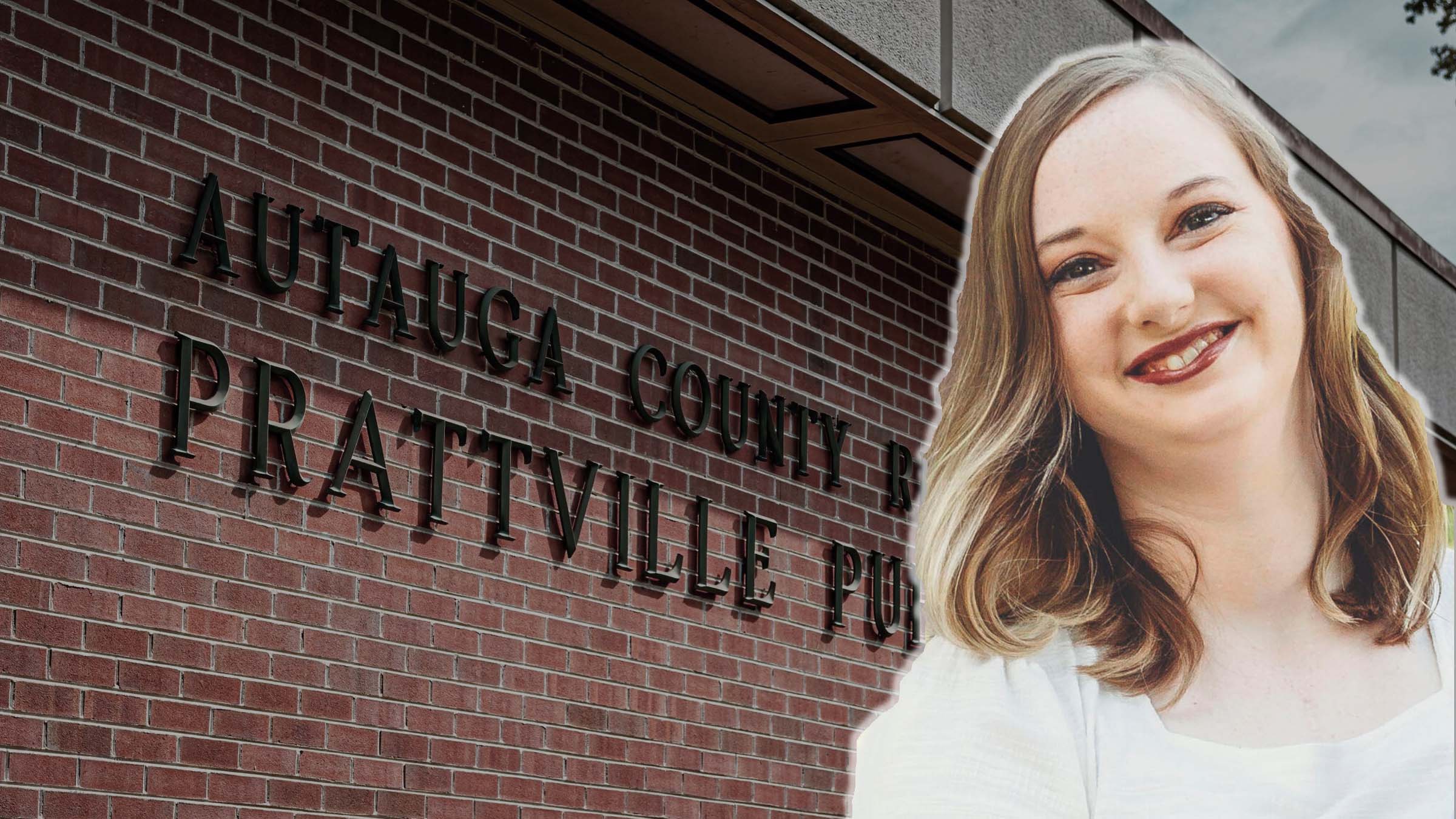The Autauga-Prattville Library Board has never faced a lawsuit, and two of its biggest detractors told the board explicitly that they lack the standing to sue them. Now one of them has rewritten the board’s policies in a way that invites legal challenges, and gotten herself hired to defend them.
On Aug. 3, 2023, Matt Clark stood up in the first-ever public comment session ever held at an APPL Board meeting and explained why his law firm had not sued them.
“And by the way, that’s why the (Alabama Center for Law and Liberty) has not sued the library board yet, because this is government speech,” Clark said, differentiating government speech from public speech. “We don’t have grounds to sue you right now.”
Seven months later, his wife Laura Clark represents the Autauga-Prattville Public Library as legal counsel at a rate of $200 an hour.
Matt Clark served as the first president of the Alabama Center for Law and Liberty beginning in March 2021 under the umbrella of the right-wing think tank Alabama Policy Institute.
He stepped down from the role in July 2023 to become a senior staff attorney for Alabama Supreme Court Chief Justice Tom Parker, and Laura Clark stepped up to become interim president of the legal firm and continues in that role today.
The couple’s argument that library books are government speech and not public speech—and therefore do not fall under first amendment protections,—may now get tested in a court of law. Several Prattville residents have signaled a desire to explore legal recourse against new policies instituted by the APPL board, drafted with assistance by Laura Clark, that prohibit books with LGBTQ+ content.
Library board chair Ray Boles, in an email to resigning board member Christie Sellers, assured sellers that the policies would “stand up in court” as “we hired an constitutional attorney to help us with this.”
Boles allowed Clark to be directly involved with writing the policies even before the board ever held a vote to hire her. The email suggests Boles was more concerned about how the policies would fare in court rather than trying to avoid litigation altogether, even though the library has no funds set aside for legal representation.
Clark appears to have convinced at least four people on the board that her argument is correct—and now that the policies are in place, given herself an opportunity to defend those policies in court, all at the expense of Autauga County taxpayers.
A similar argument just got soundly dismissed in a Florida federal courtroom. U.S. District Judge Kent Wetherell ruled against the State of Florida’s argument that libraries should be considered government speech, and even questioned how a “reasonable person” could think such a thing.
“… the fact that the traditional purpose of a library is to provide information on a broad range of subjects and viewpoints, the court simply fails to see how any reasonable person would view the contents of the school library (or any library for that matter) as the government’s endorsement of the views expressed in the books on the library’s shelves,” Wetherell said in his ruling. “… the speech embodied in a library collection is materially different from the speech embodied in government-sponsored parades, prayers, art exhibits, and monuments on public property.”
The Clarks cite United States v. American Library Assn., Inc. (2003) as precedent that library materials are not public speech, but government speech.
“In this case, the Supreme Court explained that the government has the discretion to make content-based judgments in deciding what private speech to make available to the public — private speech such as books,” Laura Clark wrote in an Op-Ed on 1819 News, a site spawned by API two years before it formed the ACCL.
If lawsuits come through against the board, the library will be in a bind. The board reduced planned advertising expenditures by $2,000 to create space in the budget to pay Clark. At $200 an hour, that’s only 10 hours of her time.
Boles told APR that if Clark needed to work additional hours to represent the board, “we would go back to the budget and find the funds.”
Between the city and county, plus state and federal aid, the library’s budget is right around $600,000. Those appropriations have already been planned out without any expected expenditures for an attorney. The library board has typically been welcome to consult with city attorney Andrew Odom or county attorney Kyle Shirley free of charge, although the library’s lack of an attorney caused problems when the board became unhappy with a proposed contract from the city, as Odom couldn’t represent both sides.
That contract was voted down, however, and Boles said he hired Clark to prevent from violating the Open Meetings Act after admittedly violating it when the board held an executive session during its January meeting. There were at least three likely Open Meetings Act violations in that meeting alone—the board failed to vote to enter executive session, the board failed to conclude the executive session, and the board appears to have taken action in executive session when it picked two nominees to recommend to the Prattville City Council.
Sellers also expressed her concern that the rest of the board might be participating in “secret meetings” without her, which would constitute one or more violations of the act.
Since these legal procedures are not in conflict with the city or county, there appears to be no reason Odom or Shirley couldn’t give free guidance on correctly navigating procedures rather than the board racking up a $200 per hour bill.
And Clark’s contract likely won’t be the end of the board’s financial woes. Sources familiar with the Library Services and Technology Act (LTSA) grants say the library is all but destined to lose its federal funding; about $20,000. Whether the library will also lose about $80,000 in state funding is unclear.
The library could turn to the Prattville City Council and Autauga County Commission for more funding, but it seems unlikely that either would want to be on the hook for a potentially disastrous legal bill.



















































